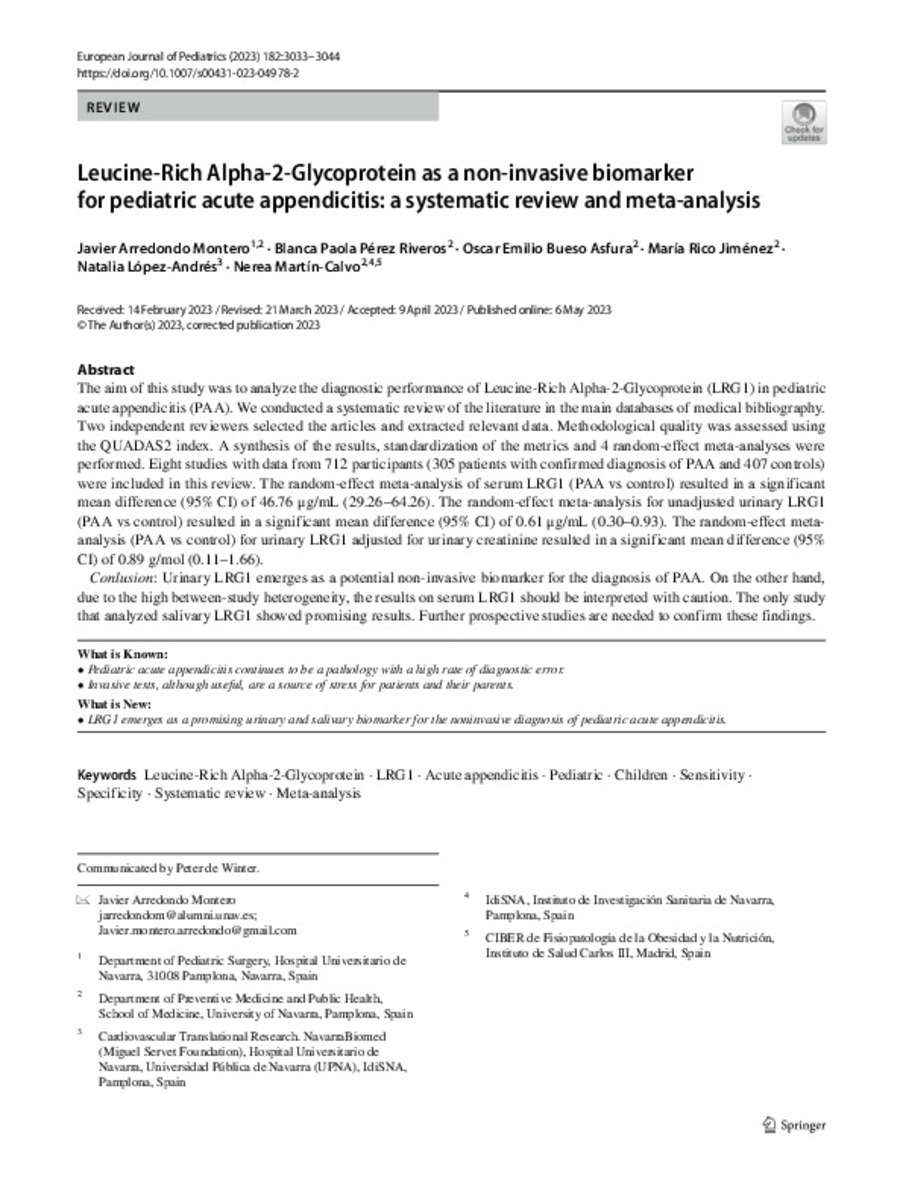Leucine-Rich Alpha-2-Glycoprotein as a non-invasive biomarker for pediatric acute appendicitis: a systematic review and meta-analysis
Palabras clave :
Área de Medicina Clínica y Epidemiología
Meta-analysis
Leucine-rich alpha-2-glycoprotein
LRG1
Acute appendicitis
Pediatric
Children
Sensitivity
Specificity
Systematic review
Fecha de publicación :
2023
Cita:
Arredondo Montero, J.; Pérez Riveros, B. P.; Bueso Asfura, O. E.; et al. "Leucine-Rich Alpha-2-Glycoprotein as a non-invasive biomarker for pediatric acute appendicitis: a systematic review and meta-analysis". European journal of pediatrics. 182 (7), 2023, 3033 - 3044
Aparece en las colecciones:
Estadísticas e impacto
0 citas en

Los ítems de Dadun están protegidos por copyright, con todos los derechos reservados, a menos que se indique lo contrario.







